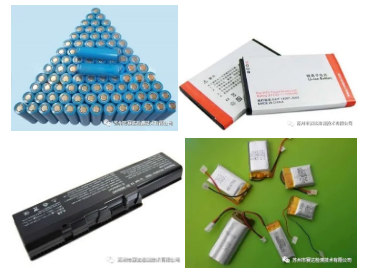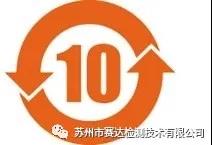COMPANY
News
HOME > COMPANY > News
Lithium battery products national safety regulations and access requirements
Date:2020/9/21 Clicks:1269
Principle of conventional lithium battery
Li-ion batteries have a working voltage of 3.6V (the normal voltage range is between 3.0-4.2V) and a cycle life of more than 500 times. It has a high specific energy and working pressure, a wide working temperature range, a long cycle life, and fast charging. No memory effect and other advantages.
Lithium-ion batteries are widely used in electrical appliances such as mobile phones, notebook computers, cameras, and medical instruments. Large-capacity, high-power power lithium-ion battery is expected to become an ideal power source for electric vehicles
Lithium battery target market
1. Chinese market CQC certification GB/T 18287
GB/T 18287
General specification of lithium-ion battery for cellular phone
General specification for lithium ion batteries for cellular phones
YD 1268
The safety specification and test method for lithium batteries and charger
Safety requirements and test methods of lithium batteries and chargers for mobile communication mobile phones
Environmental requirements:
The battery application for CB verification must pass the EN62133 standard verification.
3. American market
UL certification: UL 1642 for batteries, UL 2054 for battery packs
Safety requirements for lithium battery transportation (UN38.3 and 1.2m drop test)
Battery-related environmental regulations (US Battery Directive) mainly test the content of lead and mercury.
4. EU market
EU Battery Directive:
On May 2, 2019, the EU adopted the draft of the New Battery Directive No. 98. On September 6 of the same year, the new battery directive 2019/66/EC came into effect, and the original battery directive (91/157/EEC) and Its revised provisions (98/101/EC and 93/86/EEC). Member states must convert the new battery directives into national laws before September 26, 2019.
5. Japanese market
Japanese Industrial Standards (JIS) is the most important and authoritative standard among Japanese national standards. Developed by the Japanese Industrial Standards Investigation Committee (JISC).
PSE certification standard JIS8714
6. Korea KPS certification
The Korean KPS certification is a "safety certification" for daily necessities in Korea. (Certified products include: keyboards, mice, batteries and other daily necessities) At present, KPS certification in Korea is attracting attention in Korea. Products that have obtained KPS certification from South Korea represent excellent quality assurance.
The main test standard for battery KPS certification is IEC61960
Li-ion batteries have a working voltage of 3.6V (the normal voltage range is between 3.0-4.2V) and a cycle life of more than 500 times. It has a high specific energy and working pressure, a wide working temperature range, a long cycle life, and fast charging. No memory effect and other advantages.
Lithium-ion batteries are widely used in electrical appliances such as mobile phones, notebook computers, cameras, and medical instruments. Large-capacity, high-power power lithium-ion battery is expected to become an ideal power source for electric vehicles
Common lithium battery

Lithium battery target market
1. Chinese market CQC certification GB/T 18287
GB/T 18287
General specification of lithium-ion battery for cellular phone
General specification for lithium ion batteries for cellular phones
YD 1268
The safety specification and test method for lithium batteries and charger
Safety requirements and test methods of lithium batteries and chargers for mobile communication mobile phones
Environmental requirements:

The battery application for CB verification must pass the EN62133 standard verification.
3. American market
UL certification: UL 1642 for batteries, UL 2054 for battery packs
Safety requirements for lithium battery transportation (UN38.3 and 1.2m drop test)
Battery-related environmental regulations (US Battery Directive) mainly test the content of lead and mercury.
4. EU market
EU Battery Directive:
On May 2, 2019, the EU adopted the draft of the New Battery Directive No. 98. On September 6 of the same year, the new battery directive 2019/66/EC came into effect, and the original battery directive (91/157/EEC) and Its revised provisions (98/101/EC and 93/86/EEC). Member states must convert the new battery directives into national laws before September 26, 2019.
5. Japanese market
Japanese Industrial Standards (JIS) is the most important and authoritative standard among Japanese national standards. Developed by the Japanese Industrial Standards Investigation Committee (JISC).
PSE certification standard JIS8714

6. Korea KPS certification
The Korean KPS certification is a "safety certification" for daily necessities in Korea. (Certified products include: keyboards, mice, batteries and other daily necessities) At present, KPS certification in Korea is attracting attention in Korea. Products that have obtained KPS certification from South Korea represent excellent quality assurance.
The main test standard for battery KPS certification is IEC61960
Add.:Room703、705/7F, Development Building, Tian An Hi-Teck Ecological Park, No.555 North Road Panyu Avenue, Panyu District, Guangzhou City, 511400, China
Tel.:020-39211670 Fax:020-39211640 E-mail:info@certitek.cn

